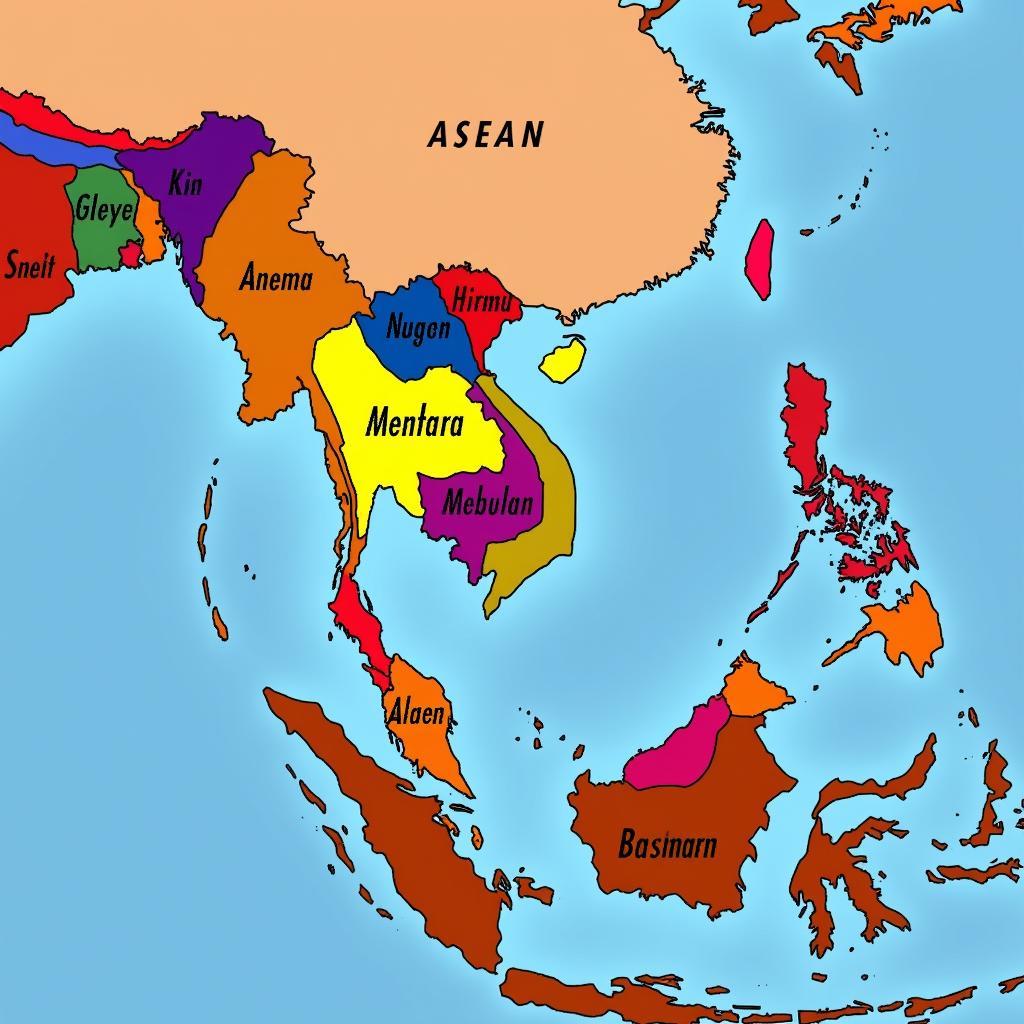Southeast Asia, a region of vibrant cultures and diverse landscapes, is also home to a complex geopolitical landscape. The Association of Southeast Asian Nations (ASEAN), established in 1967, plays a pivotal role in promoting peace, stability, and cooperation in the region. This article delves into the multifaceted relationship between ASEAN and the security of Southeast Asia, exploring the challenges and opportunities that shape the region’s security environment.
The Rise of ASEAN and Regional Security
ASEAN’s formation was driven by a shared desire for regional stability and economic prosperity. The organization’s founding principles, emphasizing peaceful coexistence, cooperation, and non-interference in internal affairs, laid the groundwork for a regional security architecture. Over the years, ASEAN has grown in influence and stature, becoming a key player in regional and global security discussions.
The Security Landscape: Challenges and Opportunities
Southeast Asia’s security environment is characterized by both enduring and emerging challenges. Traditional threats, such as territorial disputes, maritime security concerns, and the proliferation of weapons of mass destruction, continue to pose significant risks. The region also confronts non-traditional threats, including transnational crime, terrorism, climate change, and cyberattacks.
Maritime Security and Territorial Disputes
The South China Sea, a vital waterway for global trade and a source of rich natural resources, remains a contentious area. Territorial disputes between China and several ASEAN member states, namely Vietnam, the Philippines, Malaysia, and Brunei, continue to simmer. These disputes have the potential to escalate tensions and undermine regional stability.
“The South China Sea is a complex issue with multiple layers,” says Dr. Li Wei, a renowned Southeast Asia expert. “ASEAN’s approach to resolving these disputes has been based on diplomacy and dialogue, but progress has been slow. Finding a peaceful and sustainable solution is essential for regional security and prosperity.”
Transnational Crime and Terrorism
Southeast Asia is a transit point for illicit drugs, arms, and human trafficking. The region has also witnessed a rise in terrorist activity, particularly in countries like Indonesia, Malaysia, and the Philippines. These transnational threats require coordinated responses and collaborative efforts between ASEAN member states and international partners.
Climate Change and Environmental Security
Climate change poses a significant threat to Southeast Asia’s environmental security and economic well-being. Rising sea levels, extreme weather events, and natural disasters have a devastating impact on coastal communities and economies. ASEAN has taken steps to address climate change through initiatives such as the ASEAN Agreement on Transboundary Haze Pollution and the ASEAN Regional Forum.
Cyber Security and Emerging Threats
Cyberattacks, data breaches, and online disinformation have become increasingly prevalent in Southeast Asia. These threats can undermine national security, disrupt critical infrastructure, and erode public trust. ASEAN is working to enhance cyber security cooperation through the ASEAN Cyber Security Framework and the ASEAN Regional Forum’s Cyber Security Working Group.
ASEAN’s Role in Promoting Security
ASEAN has established several mechanisms to promote regional security, including the ASEAN Regional Forum (ARF), the ASEAN Defence Ministers Meeting (ADMM), and the ASEAN Political-Security Community (APSC). These forums provide platforms for dialogue, cooperation, and confidence-building measures among ASEAN member states and external partners.
ASEAN Regional Forum (ARF)
The ARF, established in 1994, is a key regional security forum that brings together 27 countries from across Asia-Pacific. It provides a platform for dialogue and cooperation on a wide range of security issues, including arms control, terrorism, and non-proliferation.
ASEAN Defence Ministers Meeting (ADMM)
The ADMM, launched in 2006, focuses on practical cooperation among ASEAN defence ministries. It aims to enhance defense capabilities, build trust and transparency, and promote regional security.
ASEAN Political-Security Community (APSC)
The APSC, established in 2007, seeks to create a regional security community that is peaceful, stable, and prosperous. It focuses on areas such as conflict prevention, peacebuilding, and humanitarian assistance.
The Future of ASEAN and Regional Security
The challenges facing Southeast Asia are complex and interconnected. ASEAN’s role in promoting security will continue to be crucial in ensuring a peaceful and stable region. The organization must adapt to emerging threats, strengthen regional cooperation, and promote dialogue and diplomacy to address security challenges effectively.
FAQs:
Q: What are the key challenges facing ASEAN in terms of regional security?
A: ASEAN faces a range of security challenges, including territorial disputes, transnational crime, terrorism, climate change, and cyberattacks.
Q: What is ASEAN’s role in promoting security in the region?
A: ASEAN has established mechanisms like the ARF, ADMM, and APSC to foster regional security through dialogue, cooperation, and confidence-building measures.
Q: How does ASEAN address non-traditional security threats?
A: ASEAN has implemented initiatives to address non-traditional threats such as climate change, cyber security, and transnational crime through collaborative efforts and regional agreements.
Q: What are the future prospects for ASEAN’s role in regional security?
A: ASEAN’s role in maintaining regional security will continue to be vital. The organization must remain adaptable to emerging threats, strengthen cooperation, and promote dialogue and diplomacy to effectively address security challenges.
Q: What are some of the key areas where ASEAN can focus its efforts to enhance regional security?
A: Key areas for ASEAN to focus on include strengthening maritime security, combating transnational crime and terrorism, promoting cyber security, and addressing climate change.
Q: What is the importance of ASEAN’s cooperation with external partners in promoting regional security?
A: ASEAN’s cooperation with external partners is crucial for addressing transnational threats, enhancing defense capabilities, and sharing best practices in security.
Q: How can ASEAN effectively manage the competing interests of its member states in the pursuit of regional security?
A: ASEAN can manage competing interests through consensus-building, diplomatic dialogue, and finding common ground on shared security priorities.
Q: What is the role of civil society in promoting regional security in Southeast Asia?
A: Civil society plays a vital role in promoting peace, reconciliation, and conflict resolution through advocacy, education, and community mobilization.
Q: What is the significance of ASEAN’s commitment to the rule of law and human rights in promoting regional security?
A: ASEAN’s commitment to the rule of law and human rights promotes stability, good governance, and peaceful conflict resolution, contributing to overall security in the region.

